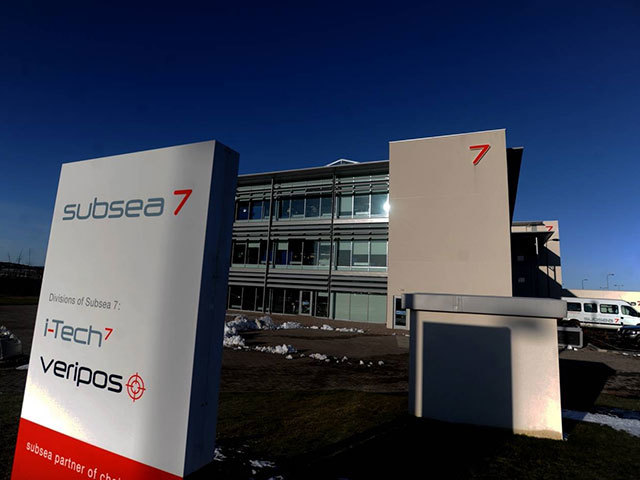
Offshore contracting company Subsea 7 plunged into the red last year, hit by continuing low oil prices and reduced client activity.
Pre-tax losses at the company amounted to almost £5.9million in 2015, compared to profits of £600million the previous year, according to annual accounts released by Companies House.
Low levels of industry activity saw the firm’s revenue plummet 20% from around to £1.2billion in 2014 to £940million.
Last month Subsea 7 started formal consultations with hundreds of staff in Aberdeen after revealing further plans for global resizing and reduction earlier this year.
The company is expected to cut its current 1,500-strong UK workforce by 430 by the end of the first quarter of next year, with an estimated 230 posts understood to be at risk in Aberdeen.
In his foreword to the annual accounts, Subsea 7 finance director Colin Strachan said: “The company delivered a good operational and financial performance in 2015 in a very challenging market, with low levels of industry activity as clients continued to delay new project awards and limit discretionary work. Throughout 2015 the company’s clients reduced investment and held back on discretionary expenditure due to the low oil and gas prices.
“The Subsea 7 SA group, being Subsea 7 SA and its subsidiaries, acted decisively by simplifying the organisation structure and implementing substantial cost reduction plans.
“This was accomplished while retaining the capability and expertise required to remain competitive and execute projects consistently well.” Subsea 7 directors recommended no final dividend be paid for the second year running, “in view of the challenges facing the oil and gas industry in the near medium-term and in order to preserve the company’s financial flexibility so it can benefit from opportunities that arise during the downturn”. The annual accounts include the company’s operations in the UK and those of its branches in South Africa, Equatorial Guinea, Mexico, Turkey, Libya, Ghana and Venezuela.
They show its revenue in the UK fell from over £1.1billion in 2014 to just under £800million in 2015 and also dropped in Equatorial Guinea and Venezuela. However, it increased from £3.6million to £125million in Ghana year-on-year. Revenue from other areas grew from £476,000 to £711,000 in 2015.
Mr Strachan noted the impact of a goodwill impairment charge of £103.3million, a non-cash item, which “largely reflected the impact of projected market activity.”
Last year the company’s highest paid director earned £569,165, a decrease form the previous year’s figure of £633,894.
Looking ahead, to future developments, Mr Strachan said: “The low oil and gas price continues to depress activity as clients delay and cancel new projects; the timing of recovery remains highly uncertain.
“Despite the difficult near to medium-term outlook, the fundamental long-term outlook for subsea field developments remains intact and industry activity is expected to recover when the oil and gas market rebalances. The company has already implemented a number of initiatives to strengthen its position.”
Recommended for you
